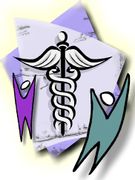
Nearly 8% of Americans have allergic rhinitis. Also known as hay fever, this is caused by allergic reactions that can be seasonal or not. If you have this condition, you may be used to dealing with its uncomfortable symptoms on your own. However, doctors can relieve the discomfort in several ways. To help you find long-term relief, the guide below outlines what causes these reactions and a few potential treatment options.
What Triggers Allergic Rhinitis?
Allergic rhinitis is an allergic reaction. It happens when the body produces histamine, a compound released as the immune system attempts to defend you against a material it perceives as a threat. Histamine leads to uncomfortable symptoms, such as sneezing, nasal congestion, itchy nose and eyes, nasal dripping, fatigue, and headaches.
Common triggers include tree and grass pollen, dust mites, animal dander, and mold. Tree pollen is common in the spring, while grass pollen is more common in the fall and summer. In Alaska, common culprits are birch, alder, and cottonwood pollen.
 After being exposed to an allergen, you might experience one or more symptoms right away. However, fatigue and headaches often result from long-term exposure. While some people may only experience symptoms once in a while, others face them year-round.
After being exposed to an allergen, you might experience one or more symptoms right away. However, fatigue and headaches often result from long-term exposure. While some people may only experience symptoms once in a while, others face them year-round.
What Are Your Allergy Care Options?
If you experience symptoms throughout the year, visit your medical provider to identify the triggers. This helps you develop a treatment plan to improve your quality of life.
There is a range of treatment options for allergic rhinitis. One common method is taking antihistamines, which block the compound that causes the reactions. You can also try over-the-counter decongestants to improve breathing. However, if you rely on these regularly, symptoms may worsen after you stop taking them.
For those with severe symptoms, immunotherapy via allergy shots is a long-term solution. Over time, allergy shots minimize the immune response to particular allergens. As it may take over a year to notice results, you may need allergy medications in conjunction with the treatment.
Another alternative for those with severe symptoms is sublingual immunotherapy (SLIT). In this treatment, the doctor places a tablet that contains several allergens under the patient’s tongue. This works like allergy shots, but without needles.
For allergy care, visit Patients First Medical Clinic in Anchorage, AK. Their experienced medical professionals, including board-certified doctors and nurse practitioners, use the latest medical equipment to cater to patients’ needs. They handle medical issues with respect, discretion, and personalized attention. Visit them online for more information about their practice, or call (907) 333-7425 to discuss your needs.
About the Business
Have a question? Ask the experts!
Send your question

